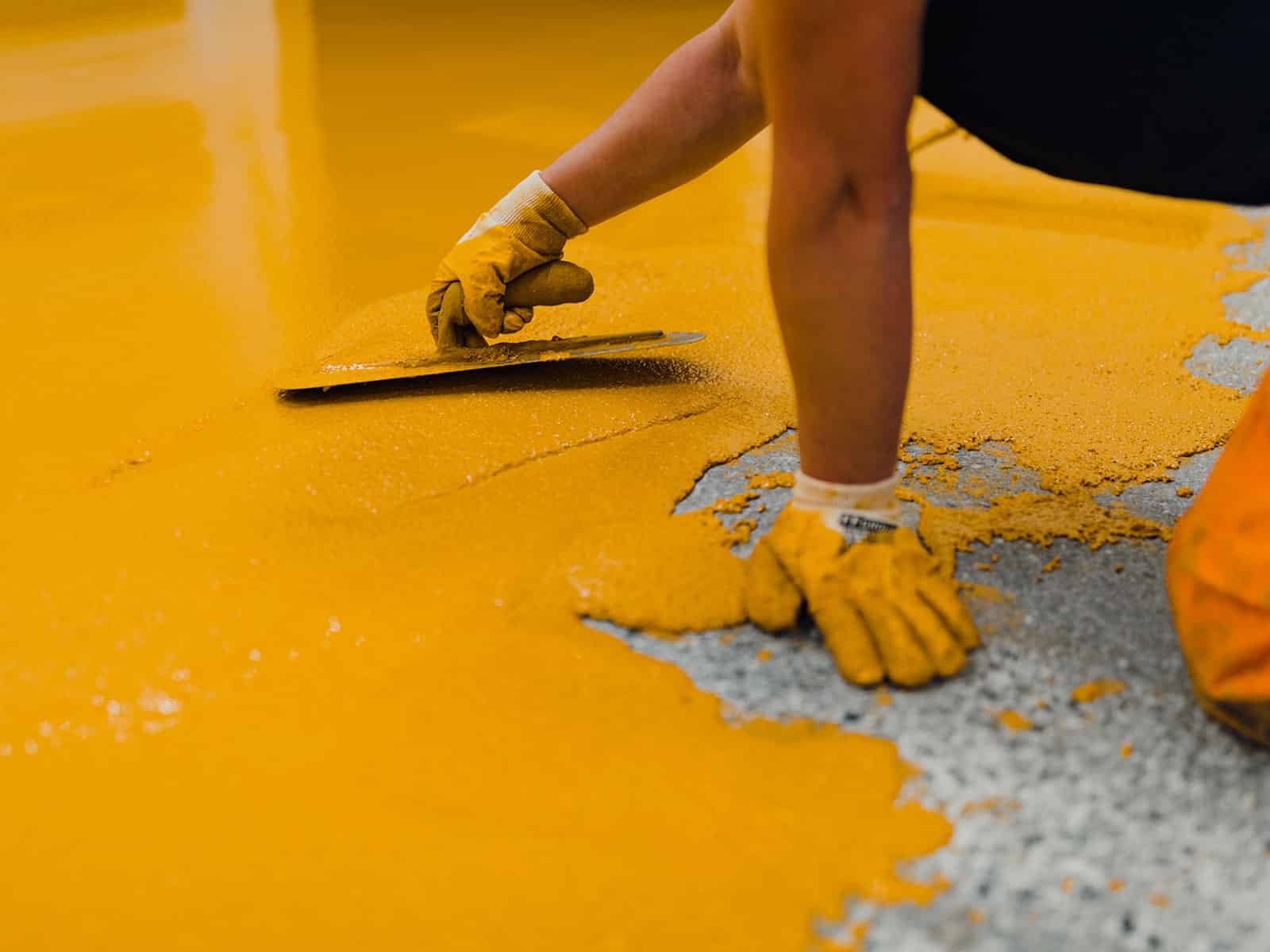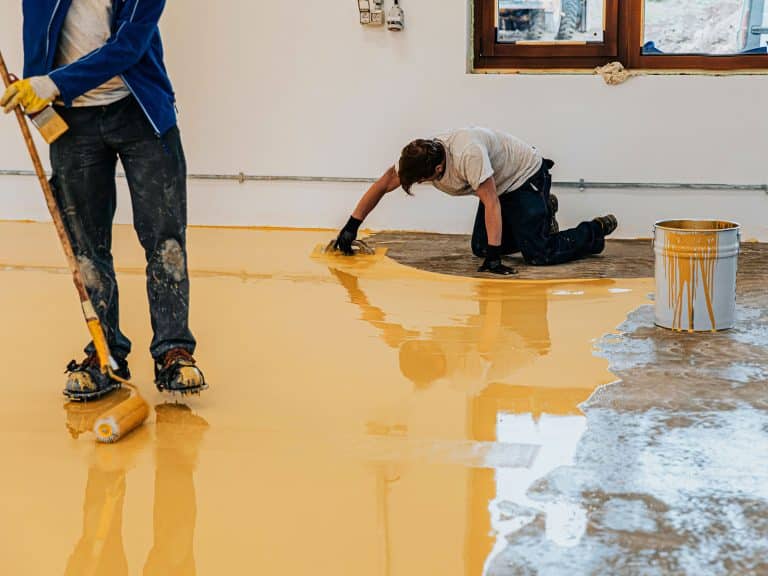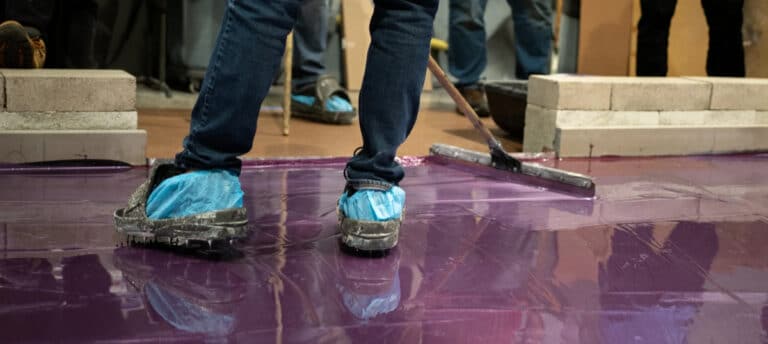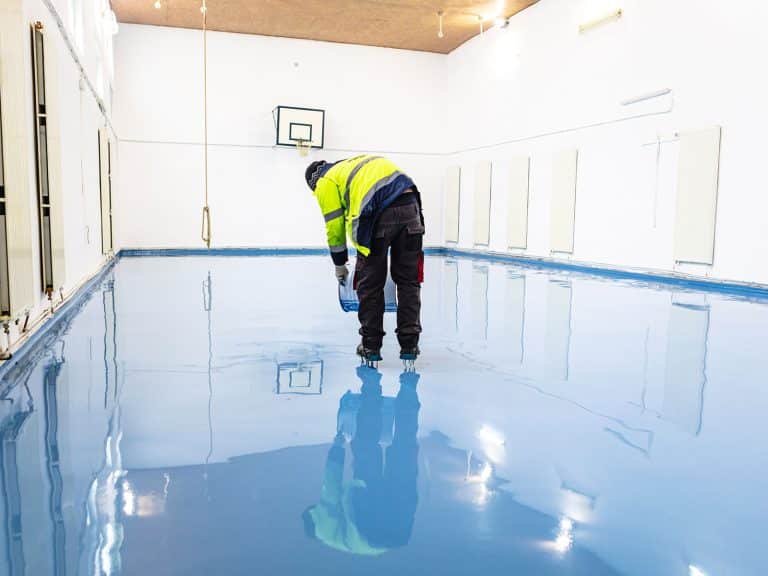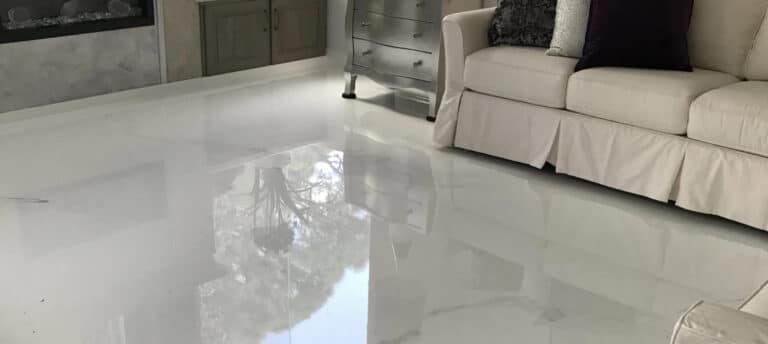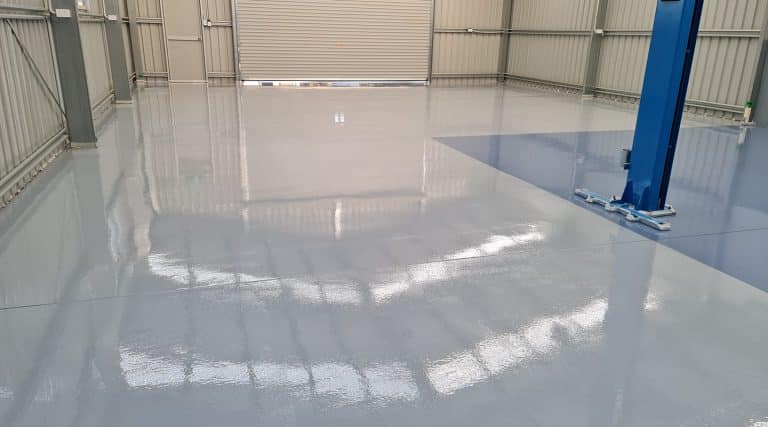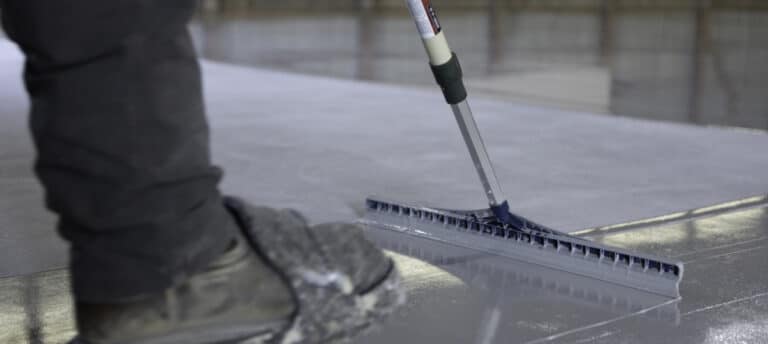4 Best Types of Epoxy Flooring: Tips, Costs & Everything You Need to Know
Choosing the right type of epoxy flooring is crucial whether you’re outfitting a commercial kitchen, sprucing up your garage, or giving your office a sleek, modern look.
But with so many options on the market, making the right choice can feel as slippery as a newly waxed floor.
In Perth’s climate, from scorching summers to the occasional downpour, selecting a flooring solution that withstands the test of time (and weather) is crucial.
In this guide, we’ll help you choose the epoxy finish that’s best for you by covering:
- Your top types of epoxy flooring
- Tips for choosing the right flooring
- Cost breakdown
- And plenty more…
Epoxy stands out for its durability, ease of maintenance, and aesthetic versatility. However, not all epoxy floors are created equal.
The right selection can enhance safety, improve aesthetics, and even boost your property’s value.
And we’ll help you make the choice that’s right for you.
4 Popular Types of Epoxy Flooring
Epoxy is not a one-size-fits-all solution. From industrial-grade to designer finishes, each type offers its unique set of characteristics.
#1 – Self-levelling Epoxy Floors
Self-levelling epoxy is a go-to for creating a smooth, seamless surface over new or damaged concrete floors. It’s ideal for areas requiring a flat and flawless finish.
Pros:
- Ease of Maintenance: Its seamless nature means there are no cracks or crevices for dirt and bacteria to hide, making it incredibly easy to clean.
- Versatility: Available in a variety of colours and finishes, self-levelling epoxy can be tailored to match any decor style.
- Durability: This type of flooring is resistant to wear, making it suitable for high-traffic areas.
How Long Does Epoxy Flooring Last?
Cons:
- Preparation Requirements: The concrete substrate must be properly prepared to ensure adhesion, which can be time-consuming and costly.
- Application Skill: It requires professional installation to ensure a smooth finish, adding to the overall cost.
#2 – Epoxy Flake Floors
Epoxy flake floors incorporate coloured flakes scattered over the epoxy base and sealed with a clear coat, creating a vibrant, textured surface.
Pros:
- Aesthetic Appeal: The flakes add colour and depth, offering a more decorative finish than plain epoxy.
- Slip Resistance: The textured surface provides improved slip resistance, enhancing safety in wet areas.
- Hide Imperfections: The flakes can help disguise dirt and minor imperfections in the flooring.
Cons:
- Complexity of Application: Achieving an even distribution of flakes requires expertise, potentially increasing installation costs.
- Selection Limitations: While there’s a wide range of flake colours, matching existing decor can sometimes be challenging.
#3 – Metallic Epoxy Floors
Metallic epoxy floors use metallic pigments mixed with clear epoxy to create a glossy floor with a depth of colour and a marbled effect.
Pros:
- Unique Aesthetic: Each floor is one-of-a-kind, with the ability to mimic natural stone, lava flow, or even a galaxy.
- Durability: Like other epoxy floors, metallic epoxy is durable and long-lasting.
- Reflective Quality: The glossy finish can enhance lighting in a space, making it appear brighter and larger.
Cons:
- Cost: Metallic epoxy can be more expensive than other options due to the specialised materials and techniques required.
- Installation Time: The process can be time-consuming, requiring several layers and curing times.
#4 – Industrial-grade Epoxy Floors
Designed for the toughest environments, industrial-grade epoxy floors offer maximum durability and resistance to chemicals, impacts, and abrasions.
Pros:
- Extreme Durability: Engineered to withstand harsh conditions, making it ideal for warehouses, factories, and garages.
- Chemical Resistance: Resists a wide range of chemicals, oils, and solvents.
- Safety Features: Can be formulated with anti-slip additives to ensure a safe working environment.
Cons:
- Aesthetic Limitations: Typically available in fewer colours and finishes, focusing more on functionality than appearance.
- Cost: The high-performance nature of industrial-grade epoxy can make it more expensive than residential options.
Factors to Consider When Choosing The Right Type Of Epoxy Flooring
Selecting the right type of epoxy flooring for your property involves more than just picking a colour or style that catches your eye. It’s about matching your specific needs with the right type of flooring.
Here’s what you should take into account before locking in your choice.
Usage and Traffic
High-traffic areas such as commercial kitchens, garages, and retail spaces require a durable solution that can withstand constant footfall, heavy machinery, and potential spills.
Industrial-grade epoxy or self-levelling epoxy are ideal for these settings due to their robustness and ease of maintenance.
Spaces that see moderate to low traffic, or where aesthetic appeal is a priority, might benefit more from metallic or epoxy flake floors, which provide unique visual effects and a degree of slip resistance.
Aesthetic Preferences
Epoxy offers a wide range of finishes, from high-gloss options that can brighten up a room to textured surfaces that add depth and character.
If you want a floor that serves as a statement piece, metallic epoxy might be your go-to with its swirling patterns and reflective surface.
For those looking to achieve a specific colour scheme or theme, the custom finish of flake and self-levelling epoxy floors can match virtually any design concept. Remember, the flooring should complement the overall aesthetic of your space, not detract from it.
Maintenance and Durability
Epoxy floors, in general, are known for their durability and ease of cleaning. However, some types require more care than others.
For instance, high-traffic areas benefit from flooring options that are not only resistant to wear and tear but also easy to maintain, such as self-levelling or industrial-grade epoxies.
These options provide a seamless surface that is less prone to staining and can be cleaned without specialised products.
On the other hand, floors with decorative flakes or metallic finishes might require a bit more attention to maintain their unique looks over time.
Cost Considerations
While it’s tempting to opt for the least expensive option, consider the long-term value and lifecycle cost of the flooring.
High-quality, durable epoxy like industrial-grade may come with a higher upfront cost but can save money in the long run due to its longevity and reduced need for repairs or replacement.
Metallic and flake epoxy floors, with their specialised materials and application techniques, can be more costly but offer unparalleled aesthetic appeal.
It’s essential to balance your budget with your requirements for durability, maintenance, and aesthetics to ensure that you’re making a cost-effective choice.
Your Pathway to Perfect Epoxy Floors
Here’s a quick recap of the essential points to guide your decision:
- Explore Your Options: Self-levelling, epoxy flake, metallic, and industrial-grade epoxy each offer unique benefits.
- Consider the Factors: Think about usage and traffic, aesthetic preferences, maintenance and durability, and, of course, cost considerations.
- Budget Wisely: Use the provided pricing ranges as a starting point for budgeting your project.
Remember, tailor your choice to your specific needs, considering both the function and form of the space.
Consulting with a professional can provide insights into the best epoxy flooring type for your situation, taking into account the Perth climate, your lifestyle, or your business needs.
Trust PM Industries to Help Transform Your Space
At PM Industries, we’re dedicated to helping you navigate your options to find the flooring that not only meets your expectations but exceeds them.
Whether you’re considering the sleek sophistication of metallic epoxy, the durability of industrial-grade, or anything in between, our team is here to provide expert guidance tailored to your unique needs.
- Personalised Advice: Get bespoke solutions that align with your aesthetic preferences and functional requirements.
- Competitive Quotes: Receive a comprehensive quote that ensures value without compromising on quality.
- Expert Installation: Benefit from our experienced professionals who ensure your flooring is installed to the highest standard.
Contact PM Industries today to claim your 100% obligation-free quote.

